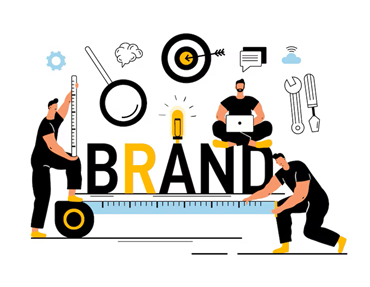In today’s digital landscape, consumers are bombarded with thousands of marketing messages daily. Amid this noise, traditional hard-sell tactics are losing their edge. Instead, the most successful brands are embracing a powerful, age-old approach: storytelling. As a content strategist, I’ve seen firsthand how storytelling outperforms selling in building trust, loyalty, and brand identity. Here’s why storytelling—not selling—is your most valuable branding tool.
1. Stories Build Emotional Connections
People don’t remember product features—they remember how a story made them feel. Emotional engagement is what turns casual visitors into loyal customers. When a brand shares a relatable story, it triggers empathy and trust, making the brand more human and approachable.
For example, instead of saying, “Our shoes are durable and stylish,” tell the story of a customer who wore them to climb a mountain or walked through an important life milestone. The emotional resonance lasts far longer than a sales pitch ever could.
2. Storytelling Creates a Memorable Brand Identity
Storytelling allows your brand to express its values, vision, and personality in a way that sticks. A compelling origin story, customer journey, or behind-the-scenes look into your process can set you apart from competitors.
Think of brands like Nike or Apple. Their success isn’t just product-based—it’s built on stories of ambition, innovation, and human potential. These narratives shape how consumers perceive the brand, often before they even engage with the product.
3. Stories Are Shareable and Viral by Nature
Consumers are far more likely to share a story than a sales message. A well-told narrative evokes emotion and provides value, which increases the chance it will be shared across social platforms.
Selling speaks to the individual; storytelling speaks to the community. This organic distribution boosts brand awareness and reach, making your audience part of your marketing team.
4. It Aligns with the Way Our Brains Process Information
Neuroscience backs it up: our brains are wired for stories. When we hear a story, multiple areas of the brain light up—language, sensory, emotional processing—compared to just one or two when we hear raw data or facts.
This means storytelling is not only more engaging but also more effective at helping people understand, retain, and recall your brand message.
5. It Shifts Focus from Product to Purpose
Customers today want to support brands with purpose. Storytelling allows you to showcase the “why” behind your brand—your mission, values, and the impact you aim to make.
When you shift from “what we sell” to “why we exist,” you open the door to building a tribe of brand advocates who buy not just because they need your product, but because they believe in your story.
6. Storytelling Builds Long-Term Loyalty
While selling is transactional, storytelling is relational. Sales tactics might drive short-term conversions, but stories foster long-term loyalty. When your audience connects with your brand story, they’re more likely to return, refer others, and defend your brand even in tough times.
Final Thoughts
The brands that win aren’t the loudest—they’re the ones that resonate the deepest. In a world tired of being sold to, your story is your superpower. It’s what sets you apart, builds trust, and keeps your audience coming back for more.
So, the next time you create content, launch a campaign, or update your website, ask yourself: are you telling a story—or just trying to sell?
Who we are: Funded.com is a platform that is A+ BBB accredited over 10+ years. Access our network of Angel Investors, Venture Capital or Lenders. Let us professionally write your Business Plan.



 While you have been busy creating and planning your
While you have been busy creating and planning your